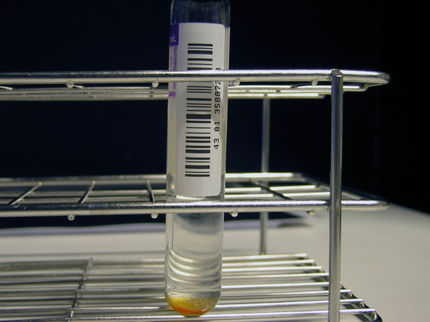Capitainer participates in global AI project for advanced lung diagnostics
New project combines AI and self-sampling
Advertisement
Capitainer, a Swedish MedTech start-up specializing in self-sampling solutions, plays a key role in the international AIR project (artificial intelligence Radiology) aimed at improving the diagnostics and monitoring of lung diseases. Through Capitainer's innovative technology, patients can easily collect blood samples at home and send them for laboratory analysis, increasing healthcare accessibility for those who struggle to reach traditional healthcare facilities.

Capitainer AB
The AIR project is led by Halmstad University and brings together healthcare stakeholders from Sweden and Brazil, including InRad, the Brazilian radiological institute, Philips Healthcare, and the CERTI Foundation at EMBRAPII. The project aims to create a model for more equal and accessible healthcare globally by combining AI-based image analysis and laboratory diagnostics through self-sampling.
The project's two main areas are developing an AI-based algorithm to analyze computed tomography (CT) images and enabling easier blood sampling for patients with limited access to healthcare. As part of this project, analyses for blood markers used in lung diagnostics are being developed based on Capitainer's self-sampling technology, enabling patients to collect blood samples at home and send them to laboratories for analysis.
The algorithm provides radiologists with an effective tool to monitor disease progression over time and adapt care according to patient needs. Through AI, assessments can be standardized, reducing the subjectivity that often occurs when radiologists interpret images. This enables more accurate and reliable monitoring of the patient's condition. Capitainer's technology complements image analysis by adding biomarker data from blood samples, which can provide more comprehensive and precise diagnosis and follow-up.
"This is an exciting project that truly demonstrates Capitainer's ability to contribute to innovative healthcare solutions with global reach. Through our self-sampling technology, we can support the development of more accessible and equal healthcare, reaching more patients and making advanced diagnostics possible regardless of where patients are located. Combining our technology with AI-based image analysis can provide healthcare professionals with more comprehensive data to track and treat disease progression over time, which has the potential to improve both care precision and treatment outcomes," says Anna Ohlander, R&D Manager at Capitainer.
"By bringing together AI-based image analysis with Capitainer's self-sampling technology, we are opening up opportunities to create a new standard for how we monitor and manage lung diseases. This collaboration enables healthcare professionals to get a more objective and detailed picture of the patient's condition over time, which not only improves diagnostics but can also provide more reliable data for treatment and follow-up," says Fábio Gama, Associate Professor in Healthcare Innovation at Halmstad University.
The project receives funding from EMBRAPII, a Brazilian research institution, and the Swedish innovation agency Vinnova.
Other news from the department business & finance
Most read news
More news from our other portals
Something is happening in the life science industry ...
This is what true pioneering spirit looks like: Plenty of innovative start-ups are bringing fresh ideas, lifeblood and entrepreneurial spirit to change tomorrow's world for the better. Immerse yourself in the world of these young companies and take the opportunity to get in touch with the founders.
See the theme worlds for related content
Topic world Diagnostics
Diagnostics is at the heart of modern medicine and forms a crucial interface between research and patient care in the biotech and pharmaceutical industries. It not only enables early detection and monitoring of disease, but also plays a central role in individualized medicine by enabling targeted therapies based on an individual's genetic and molecular signature.

Topic world Diagnostics
Diagnostics is at the heart of modern medicine and forms a crucial interface between research and patient care in the biotech and pharmaceutical industries. It not only enables early detection and monitoring of disease, but also plays a central role in individualized medicine by enabling targeted therapies based on an individual's genetic and molecular signature.


























































